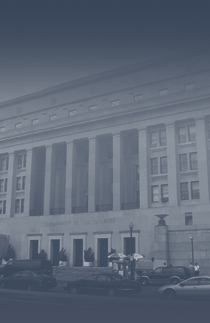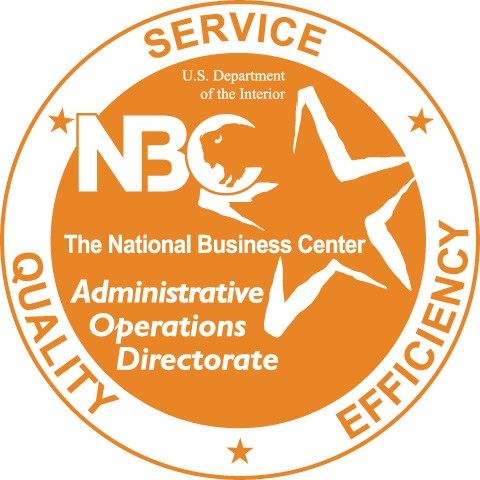
![Ring-Necked Pheasant [Fish and Wildlife Service Photo]](https://cybercemetery.unt.edu/archive/oilspill/20130215214820im_/http://library.doi.gov/images/ringneckedpheasant.jpg)
Law Library
Law Collection
The Law Collection is an integral part of the Library. It consists of United States Reports; Federal and regional reporters, selected state, territorial, and tribal codes; legal treatises; Interior legal and administrative material; legislative history materials; and legal periodicals. Particular emphasis is on material pertaining to the environment, Native Americans, and administrative law. These legal research tools are available in print, microform and CD-ROM.
Reference librarians, including a Law Librarian, are available to assist with legal research and to explain library policies.
Guide to Legal Research
- Legal Encyclopedias
- The Judiciary: Courts and Case Law
- Federal Statutes and Regulations
- Federal Legislative History Research
- Executive Documents
- Department of the Interior Administrative Decisions and Policies
- Shepard's Citators
Online Legal Resources
U.S. Department of the Interior employees may use sixteen database services to discover and obtain Congressional, Executive, and Judicial documents, as well as articles from law reviews, journals, conference proceedings, magazines, newsletters, and newspapers.
Eight of these services include coverage of law --
Access to Westlaw in the Library
The Library has acquired free IP-authenticated access to Westlaw at the DOI Library's patron workstations. No user ID or password is needed, and patrons may use Westlaw's All Primary Law National Practice collection, which combines all federal and state primary law into a single, integrated legal research tool that includes the following:
50 State Caselaw - Appellate and trial court cases, includes the District of Columbia, Puerto Rico, Guam, and the Virgin Islands
50 State Administrative Codes and State Administrative Executive and Municipal Materials - Includes administrative regulations and registers, attorney general opinions, insurance bulletins and administrative decisions on securities, and environmental and workers' compensation matters.
Federal Caselaw - Includes U.S. Supreme Court, U.S. Court of Appeals, U.S. District Courts, and specialized case law.
United States Code Annotated - Includes Titles 1-50, the Constitution, federal court rules, and notes of decisions for current coverage of cases construing and applying federal statutory law.
CFR and Federal Register - Access to the Code of Federal Regulations and Federal Register (back to July 1980), along with other federal administrative and executive materials.
All are integrated with KeyCite and include full-text plus editorial enhancements such as the West Key Number System and case synopses and headnotes. This subscription also includes Westlaw's StatutesPlus feature, offering links to documents on Westlaw related to federal and state statutes for faster interpretation, including cases, analysis, legislative history, law reviews, statutes, administrative codes, Key Numbers, and more.
Additional resources available as part of the All Primary Law National Practice collection include the Congressional Record (back to 1985), the Federal Acquisition Regulations, West's McKinney's Forms, U.S. Attorney General Opinions (since 1977), Comptroller General Decisions (since 1921), Federal Court Rules, and United States Code Legislative History (since 1948).
Access to Matthew Bender Online Treatises in the Library
Matthew Bender, one of the leading publishers of authoritative legal treatises, provides the Department of the Interior Library with online access to a number of their most popular legal treatises at the Library's patron computer workstations. These online treatises, updated daily, provide Library patrons with the most current information on a host of legal issues relevant to the Interior Department. Online access is provided to the treatises listed below:
The American Law of Mining provides in-depth treatment of all aspects of mining law including; federal lands and mineral leases; mining claims; state and Indian mineral interests, including Alaskan mineral interests; creation and transfer of mineral interests and title examination; access; ancillary use and water rights; organization of mining operations; private leases and acquisitions; joint exploration and development; income and production taxation; environmental regulation; administrative practice; mining and milling operations; and Canadian mining law.
Government Contracts features extensive coverage of the law and regulation of the business of government contracting or federal acquisition. Government Contracts addresses nearly every aspect of government contract law and practice, with references to the history and policies underlying current principles as well as current references to applicable statutes, regulations and case decisions. This treatise provides a thorough discussion from experienced practitioners that place case law and regulations in the context most useful to attorneys, contract administrators and other professionals. Topics discussed include allowable and unallowable costs, contract officer responsibilities, performance, what to do when stipulated performance becomes impossible, excusable delay, bid submission procedures, and profit margins.
Jayson's Handling Federal Tort Claims, first published in 1964, is a comprehensive guide that examines all substantive and procedural law under the Federal Tort Claims Act, including, practice and procedure; who may sue, be sued, and be joined as a party; jurisdiction and venue; elements of the cause of action; damages; excluded claims; statute of limitations; and compromise and settlement. Handling Federal Tort Claims details the process of seeking remedies from the federal government for injuries caused by the tortious conduct of its employees. The treatise, which describes the various statutory remedies available to claimants and discusses in depth the Federal Tort Claims Act, can be used as a reference by both claimants' and government attorneys. It is heavily annotated with discussions of relevant cases and includes numerous regulations and forms.
National in scope, The Law of Hazardous Waste contains everything you will need to know about current laws, regulations, and cases--both at the federal and state levels regarding the management of hazardous waste, whether newly generated or the result of past dumping, including identification of hazardous waste; requirements for generators and transporters; treatment, storage and disposal facility requirements; recycling requirements; underground storage tank and spill reporting requirements; emergency planning and community right-to-know provisions and chemical facility anti-terrorism standards; enforcement of waste management requirements; cleanup requirements; liability under Superfund and its state analogs, as well as other federal environmental statutes that regulate and impose liability for hazardous substance management. There is also coverage of international regulations and programs affecting the transport and management of hazardous waste.
Moore's Federal Practice is Matthew Bender's flagship treatise on federal civil, criminal, appellate, and admiralty procedure. The original edition was written by the late Professor James William Moore, one of the original drafters of the Federal Rules of Civil Procedure, in 1938. From its initial publication, Moore's instantly became the standard reference work on federal court procedure and has been cited thousands of times in federal court decisions. Moore's Federal Practice includes the full text of the federal rules and extensive commentary and analysis of the rules and cases interpreting the rules. The publication has been fully updated to reflect the December 1, 2007 restyling amendments to the Federal Rules of Civil Procedure. Chapters include historical appendices describing development of the law, legislative history, advisory committee notes, etc. Also includes discussion of procedure in admiralty and bankruptcy cases.
Nichols on Eminent Domain is the only combined treatise and practice guide encompassing all topics in the field of eminent domain for all jurisdictions. It provides definitive treatment of eminent domain and valuation questions and in-depth analysis of condemnation practice and procedure, including discovery, evidence, jury instructions, and examination of experts. It also includes recent important judicial developments and emerging areas of the law, including landmark Supreme Court decisions on exactions, compensation for loss of business goodwill, inverse condemnation, uniform professional appraisal standards, and the taking of environmentally contaminated property.
The Law of Federal Oil and Gas Leases provides expert legal analysis and a practical approach to problems and questions concerning federal oil and gas leases. Coverage includes leasing legislation; outer continental shelf leases; leasing in Alaska; Indian leasing; right-of-way leasing; royalties; surface management requirements and special stipulations; exploration, drilling, producing, and operating regulations; bonds; state and local regulation; lessee and transferee qualifications; assignments and transfers of interests; options and rights to acquire; administrative procedures and judicial review; and federal land records and title examination.
The Southwestern Legal Foundation Institute on Oil and Gas Law and Taxation collection contains articles written by acknowledged authorities on important legal problems in the oil and gas industry. The articles contained in this database were delivered in condensed form as lectures during the most recent Annual Institute on Oil and Gas Law held by The Center for American and International Law. This Institute was presented as part of the continuing educational program of The Institute for Energy Law of The Center for American and International Law.
The Law of Oil and Gas Leases includes a detailed discussion of topics that include assignment clauses, dry hole and lease extension clauses, entirety clauses, force majeure clauses, habendum clauses, warranty clauses, special clauses in lease agreements, and escrow agreements. This treatise also contains reports of opinions by courts of all jurisdictions thorough annotations as various state laws are described and compared.
First published in 1957, The Law of Pooling and Unitization treats both private and public relationships in pooling and unitization of oil and gas properties, as well as the antitrust aspects of pooling and unitization, pooling clauses, and state-by-state analysis. General coverage includes conservation regulation, creation of units, effects of pooling and unitization, operating problems, administrative law aspects of conservation agencies, and federal and Indian land problems. Also includes forms and the text of selected state statutes that might otherwise be difficult to obtain.
Williams & Meyers Oil and Gas Law provides an authoritative and comprehensive treatise on the law relating to oil and gas. Frequently cited by the courts and highly regarded by oil and gas attorneys, the treatise monitors changes to the law as well as new and developing areas. Expert guidance is provided on conveyancing, oil and gas leases, implied covenants, pooling and unitization, division and transfer orders, gas purchase contracts, drafting instruments, making title examinations, administering estates, and preparing wills and trusts.
Powell on Real Property's authoritative, national coverage includes an in-depth analysis of pertinent real estate case law, statutes, and regulations. Its 130-plus chapters and several practice guides cover the gamut of real estate issues with clear explanations of the current law. Examples of topics include the Americans with Disabilities Act; public accommodations and commercial facilities; effect of bankruptcy law on real property transactions and interests; condominiums, cooperatives, homeowner associations, and timesharing; conveyancing; deeds, recording acts, and title insurance; easements, licenses and restrictive covenants; eminent domain; landlord and tenant law; land use planning and regulation; mortgages, liens and foreclosures; tax aspects of real estate transactions and investments; effect of telecommunications laws on real property interests; property disputes related to conversion of railroad corridors to recreational trails and other public uses ("rails-to-trails"); and green buildings.
Grad's Treatise on Environmental Law examines issues and analyzes statutes and important case law in every area of environmental law. This includes topics such as climate change and global warming; air, water and noise pollution; solid waste; hazardous waste; toxic substances; radiation; fertilizer and feedlot pollution; pesticides; the National Environmental Policy Act and the "little NEPA's" of the states; environmental protection aspects of land use planning and controls; public lands and conservation; alternative dispute resolution in environmental law; and self-compliance programs as alternatives to traditional command-and-control systems. This treatise also provides thorough analysis of the statutes, regulations, and decisions as well as coverage of the emerging issue of climate change and global warming.
Internet Access
All Library computers have access to the Internet. Consult our lists of selected Internet resources, which describe web sites on subjects of interest to the Department of the Interior, including law. Library staff have also produced the following guides:

